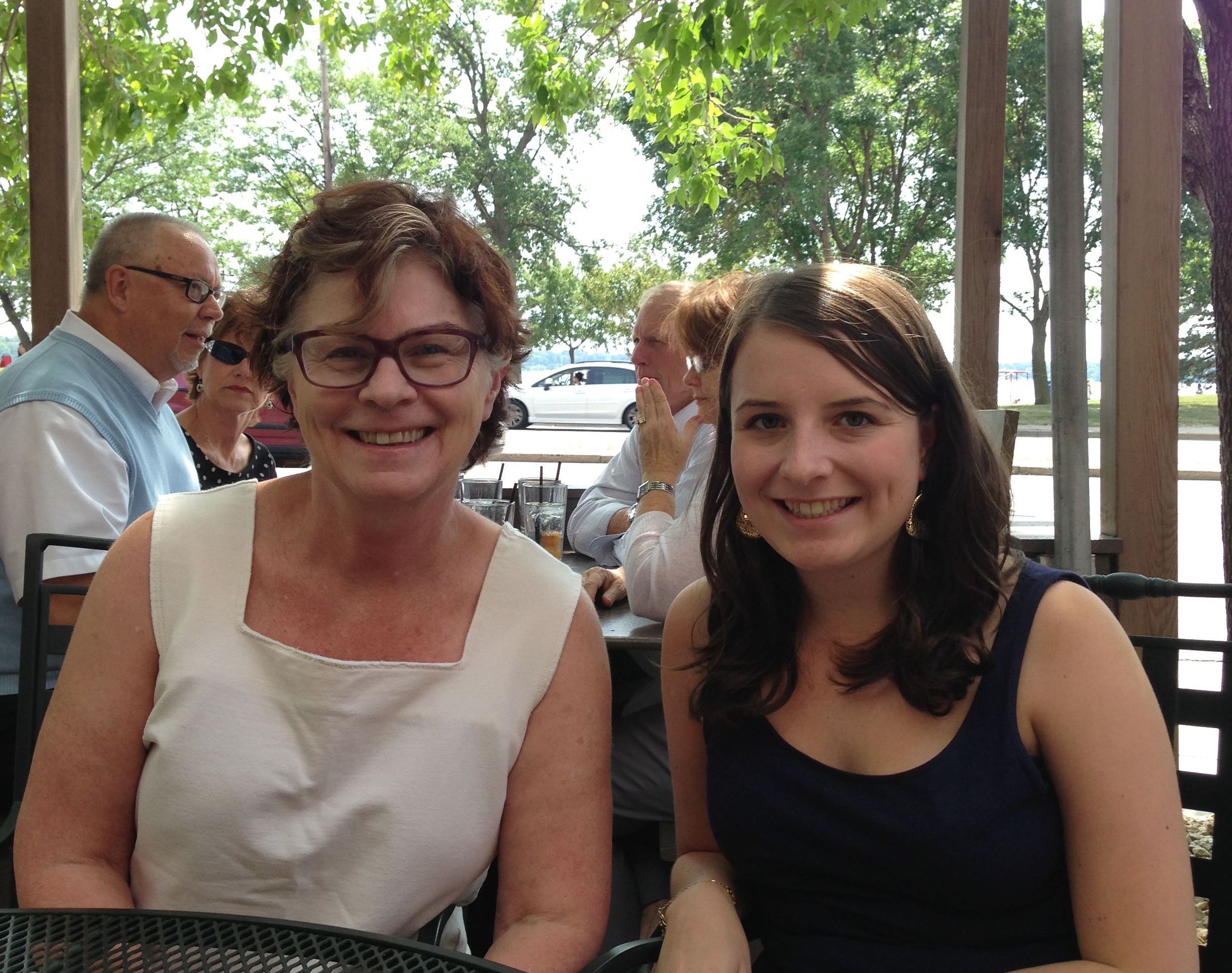IAML Studentship Winner - Ellie Lowes
Posted: 3 Oct 2013

Ellie Lowes writes:
“I was fortunate enough to win the International Academy of Matrimonial Lawyers (IAML) 2013 travel studentship, a scheme which was piloted last year for Law students at Pembroke College. This year an additional space was added to the scheme, for a student of Family Law from another Cambridge College. The competition required applicants to write an essay on an area of Family Law of their choice. I chose to write about the recent proposals for homosexual marriage, and the potential effects these proposals would have, if enacted, on heterosexual couples.
I travelled to Minneapolis for two weeks during August, and was welcomed into Walling, Berg and Debele, a firm specialising in Family Law. In particular, I was assigned to Nancy Zalusky Berg, a lawyer with a great deal of experience in this field.
I was entrusted with a range of tasks while working in the office. When I was not attending client meetings or sitting in on court appearances, I was engaged in a number of the administrative and preparatory tasks which are necessary to each case. I completed a balance sheet, which outlines the joint and separate assets of the divorcing couple, drafted letters to opposing counsel, and edited a parenting plan. This first-hand experience was extremely beneficial, allowing me to gain insight into the workings of a Family Law office, and confirming for me that I wish to pursue a career in Family Law. Often, career events are focused on Corporate Law, and areas with a more “niche” reputation like Family Law can be neglected. For this reason, opportunities like the IAML studentship are invaluable for persuading students that Family Law is a viable career option.
It was interesting to be able to draw comparisons and note differences between the two systems of law, a key aim of the studentship. In particular, Minnesota has a no-fault system of divorce (this is the same in all 50 states in the US). To me, a student familiar with the mixed fault and no-fault system in England, this seemed to remove many of the complications that could prove stumbling blocks for English lawyers, such as the length of time of the parties’ separation. The no-fault system has managed to remove many of the legal fictions associated with divorce law, and has led to a greater focus on the important issues, namely devising appropriate childcare arrangements.
Another marked difference between English and Minnesotan law was the attitude towards court scheduling. One case the firm was working on had been on the verge of settlement for a number of days. However, an agreement had not been reached in time for the trial date. The case ended up settling on the date of trial, after three hours of discussion between the attorneys and lawyers. This course of events was alien to me since I had always assumed that once the date and time of the trial had been reached, there was no longer an opportunity to discuss settlement.
It is important to stress that much of what I have learnt in Minneapolis was not jurisdiction-specific. The lawyers I was working with had mastered the art of engaging with difficult clients, and were able to adequately support them, without being overly sympathetic. They also recognised the importance of setting boundaries with certain clients, who could have developed an unhealthy reliance on their lawyer. A Family Lawyer must have the ability to maintain an emotional distance between themself and the facts of each case; this is, to me, one of the key challenges of this type of work. The situations dealt with are often messy and emotive, and an overly-involved lawyer cannot properly present the best interests of their client. Nancy was keen to emphasise the importance of this point to me, and this is a piece of advice which I hope to be able to follow when I qualify.
One evening, I attended a Criminal Law class at a local law university. Generally, I found the experience to be similar to classes at Cambridge. However, I was surprised by the amount of English cases that were studied. On reflection, perhaps I should not have been so surprised, given the interlinked history of the two nations, and the fact that they both adhere to a common law model. The US system has developed from European systems, but itself lacks any historic cases that show the early development of the law.
But the experience wasn’t all work work work! I was able to explore the beautiful area of the world that is Minnesota. The Minnesota Renaissance Festival was a highlight for me. This aims to recreate Olde England, though the exact time period is unspecified. The people working at the festival are all actors, and though many attempted English accents, few were successful! Despite the relentless heat and humidity, the day was great fun.
I had the pleasure of meeting a lot of interesting people, many of whom I will definitely be keeping in contact with. I found the people I was working and spending time with to be extremely hospitable and welcoming; everyone seemed to go out of their way to ensure that I had the best time possible. This really made a difference, and made the trip unforgettable.
Nancy Berg adds:
“Perhaps Ellie should have mentioned that it was nearly 100 degrees Fahrenheit the whole of the time she was in Minneapolis!”
